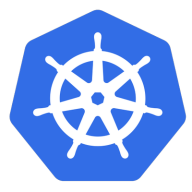

Kubernetes and Amazon EKS compete in the cloud container management category. Kubernetes offers broader flexibility in deployment environments, while Amazon EKS provides tighter AWS integration, giving each an edge depending on the user's needs.
Features: Kubernetes excels in scalability and flexibility across various environments, offering strong automation and container management with self-healing capabilities. It supports major cloud providers, enhancing its adaptability. Amazon EKS integrates seamlessly with AWS services, offering an efficient managed platform for deploying and scaling containerized applications. It features robust auto-scaling and orchestration but emphasizes AWS service integration.
Room for Improvement: Kubernetes users report challenges with its interface and significant learning curve, alongside integration issues with some tools. They seek improved dashboards, network policies, and built-in monitoring tools. Amazon EKS is criticized for high costs and a less intuitive management interface, with common requests for better node management and enhanced out-of-the-box monitoring and logging.
Ease of Deployment and Customer Service: Kubernetes supports flexible deployment across hybrid, private, and public clouds with extensive community support, albeit limited direct customer assistance. Amazon EKS primarily operates in the public cloud with strong AWS integration. EKS users benefit from AWS support but often request better user interfaces and more responsive customer service.
Pricing and ROI: Kubernetes is open-source and generally free, primarily incurring costs through infrastructure and support services, offering cost-effectiveness at scale. Amazon EKS operates on a pay-as-you-go model, with costs based on resource usage. It may be more expensive for small setups but offers strong ROI for users within the AWS ecosystem, enhancing resource management reliability and efficiency.
| Product | Market Share (%) |
|---|---|
| Amazon EKS | 11.9% |
| Kubernetes | 6.2% |
| Other | 81.9% |


| Company Size | Count |
|---|---|
| Small Business | 32 |
| Midsize Enterprise | 18 |
| Large Enterprise | 39 |
| Company Size | Count |
|---|---|
| Small Business | 25 |
| Midsize Enterprise | 9 |
| Large Enterprise | 47 |
Amazon Elastic Kubernetes Service (Amazon EKS) is a fully managed Kubernetes service. Customers such as Intel, Snap, Intuit, GoDaddy, and Autodesk trust EKS to run their most sensitive and mission critical applications because of its security, reliability, and scalability.
EKS is the best place to run Kubernetes for several reasons. First, you can choose to run your EKS clusters using AWS Fargate, which is serverless compute for containers. Fargate removes the need to provision and manage servers, lets you specify and pay for resources per application, and improves security through application isolation by design. Second, EKS is deeply integrated with services such as Amazon CloudWatch, Auto Scaling Groups, AWS Identity and Access Management (IAM), and Amazon Virtual Private Cloud (VPC), providing you a seamless experience to monitor, scale, and load-balance your applications. Third, EKS integrates with AWS App Mesh and provides a Kubernetes native experience to consume service mesh features and bring rich observability, traffic controls and security features to applications. Additionally, EKS provides a scalable and highly-available control plane that runs across multiple availability zones to eliminate a single point of failure.
EKS runs upstream Kubernetes and is certified Kubernetes conformant so you can leverage all benefits of open source tooling from the community. You can also easily migrate any standard Kubernetes application to EKS without needing to refactor your code.
Kubernetes (K8s) is an open-source system for automating deployment, scaling, and management of containerized applications.
It groups containers that make up an application into logical units for easy management and discovery. Kubernetes builds upon 15 years of experience of running production workloads at Google, combined with best-of-breed ideas and practices from the community.
We monitor all Container Management reviews to prevent fraudulent reviews and keep review quality high. We do not post reviews by company employees or direct competitors. We validate each review for authenticity via cross-reference with LinkedIn, and personal follow-up with the reviewer when necessary.